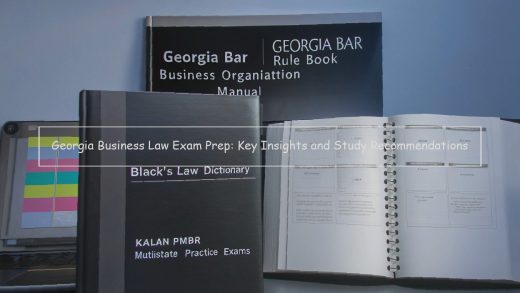
An Overview of Non-Compete Agreements
A non-compete agreement, or covenant not to compete, is a contract between an employer and an employee (or independent contractor) in which the employee agrees not to enter into direct competition with the employer during or after the employment period. Non-competition clauses are often contained within confidentiality or non-disclosure agreements as well. While not all states allow the use of non-compete agreements, Indiana does. A non-compete agreement can be useful for businesses wishing to protect their trade secrets, client lists, and other confidential information . In other words, a non-compete agreement is meant to keep employees from taking valuable trade secrets and intellectual property to a competing business or starting a competing businesses after leaving employment with the former employer.
To be enforceable in Indiana, the covenant not to compete must be reasonable in time and geographical scope. For example, a non-compete clause that prohibits a former employee from working in any competing business anywhere in the world would likely be too broad as to geographical limitations and therefore unenforceable in Indiana. Similarly, if a non-compete prohibited an individual from working in the same industry for a period of ten years, that too would likely be considered unreasonable.
Legality of Non-Compete Agreements in Indiana
Indiana has long recognized the enforceability of non-compete agreements. The law in Indiana is more favorable to employers in this respect than many other states. Indiana considers the enforcement of a non-compete agreement as a matter of public policy, and it has codified a statute that addresses this issue and has the following language:
"It is the policy of the state that covenants not to compete agreed to by employees may be enforceable to protect and legitimate interest in the employer’s trade secrets, confidential information, customer or supplier contacts, or business goodwill as an ancillary part of a written agreement with a reasonable time, geographic, and scope of activity restrictions.
A covenant not to compete is void unless the covenant:
- (1) Is ancillary to an employment or sales representative relationship between the parties;
- (2) Is designed to protect a person’s legitimate interest;
- (3) Does not impose a greater restraint than is necessary to protect the person’s interest; and
- (4) Does not impose an undue hardship on the employee or the state’s public policy." Ind. Code Section 24-2-3-2.
This statute also indicates that Indiana courts must "consider the following factors" in addition to the four elements listed above:
- (1) The person’s prior use of knowledge or information;
- (2) The fairness of the restriction on the person’s ability to pursue the person’s occupation;
- (3) The likely effect of the restriction on the resource’s supply of labor; and
- (4) The reasonableness of the restriction under the particular facts of the case.
Ind. Code Section 24-2-3-2.
In addition, the Indiana Supreme Court has adopted the Restatement of Employment Covenants Not to Compete (1990), which provides that non-compete agreements must be supported by adequate consideration. Application of this law means that an employee who receives a bonus for signing an agreement may be in a much better position to enforce that agreement.
Enforceability Requirements in Indiana
As previously discussed, in Indiana, there are three types of covenants to protect the employer’s legitimate interests that have been recognized as enforceable: non-compete agreements, non-disclosure agreements, and non-solicitation agreements. Indiana courts recognize a common law tort of tortious interference with contractual relations that includes a non-compete agreement. These covenants are governed by the reasonableness standard and must be found to have reasonable scope, duration, and geographic limitations.
Because protecting the employer’s legitimate interests is the touchstone of the employer’s request for a non-compete agreement, courts weigh the hardship on the employee against the hardship on the employer in deciding whether the agreement should be enforced. Relevant factors include: (1) the extent of the restriction on employees’ activities; (2) the length of time of the restriction; (3) the size of the geographic area that is restricted; (4) the type of activity that is restrained; and (5) whether the activity restrained is so related to the employee’s work for the employer as to be justified.
In order for a non-compete agreement to be enforced against a customer service representative selling high-end appliances, the court noted there must be the force of a protective function and the parties must have an actual exchange of consideration that advances the employer’s legitimate business interests such as legitimate trade secrets or confidential information. The court noted that the employer in that case was a retailer selling audio equipment and smartphones, laptops and tablets, televisions and wearables. The employee was not privy to any customer lists or other sources of confidential information and the non-compete agreement lacked any justification for its breadth. The court pointed out that the employer could adequately protect its interests against the employee’s solicitation of its existing customers without unduly burdening the employee’s livelihood. Because the customer service representative’s job duties did not encompass any proprietary information or trade secrets, significant portions of the agreement unnecessarily restricted the employee’s future employment opportunities.
Contesting a Non-Compete Agreement
An employee’s ability to challenge the validity of a non-compete depends on the specific agreement, and the particular facts and circumstances of the dispute. Indiana has adopted the Restatement (First) of Contracts § 515, which states: "[a]n employer’s interest in a customer available by reason of the former employment of a person may be a sufficient protectable interest to justify the imposition of a restriction, even though the customer is not a direct contact of the employer." Edwards v. Honeysuckle, Inc., 679 N.E.2d 933, 937 (Ind. App. 1997).
Because Indiana has the aforementioned Restatement (First) of Contracts § 515, in analyzing whether a particular customer or account is sufficiently "identified", the court will apply a Restatement test. Courts will offer protection to the employer’s interest in the customer if the employer has established "name recognition" among its customers in the relevant geographic area, such that the employer’s customers are "readily identifiable". Edwards, 679 N.E.2d at 938.
Next, although public policy may not be a defense in most contract disputes, Indiana courts will look at public policy considerations in assessing non-compete restrictions on employees. The Restatement (Second) of Contracts § 186 states that an agreement is unenforceable as contrary to public policy if it restricts trade or business in a way in violation of statute or the common law, unreasonably limits competition between two or more parties, or by its terms exceeds the limit of time, geographic area, or scope of activity restraining competition.
Additionally, the 2nd Restatement of Contracts § 188 states that "[a] promise which purports to limit the promisor’s future options as to change of employment is enforceable only if it is no greater than is required for the protection of a legitimate business interest of the promisee whose interest is sought to be protected."
Like other states, Indiana courts are also careful to ensure that there is consideration provided to support the non-compete agreement. See e.g. B & D Distrib., Inc. v. Wiley, 48 N.E.3d 900, 906 (Ind. App. 2016); Edwards, 679 N.E.2d at 936 (holding that the employer’s "emotional investment" in an employee does not satisfy the requirement that a valid non-compete be supported by consideration); but see Garvey Elevator Serv. Corp. v. Schmechtig, 706 N.E.2d 1248, 1255 (Ind. App. 1999) (holding that "continued employment" constitutes sufficient consideration to support a valid non-compete agreement).
The key consideration in analyzing whether a non-compete is enforceable in Indiana is the general amount and nature of the consideration offered by the employer. Without sufficient consideration, whether it is "continued employment" or "continued advancement", the non-compete obligation is not enforceable.
Creating an Effective Non-Compete Agreement in Indiana
A non-compete agreement should be drafted with this goal in mind to be enforceable: The goal of a non-compete agreement is for the company to protect its legitimate business interests, while not imposing undue restrictions on the former employee. Outlined below are best practices for ensuring compliance with the law. Also included are several tips to ensure that the agreements are fair and more likely to be enforced . In particular, the agreement should convey to the reader that the employer did not intend to foreclose any employee from future employment. Employers should consider having legal counsel draft the non-compete agreement, as well as consult with counsel prior to terminating the employee to discuss whether an enforcement effort would be worth the time and expense involved.
Recent Developments & Trends
Indiana has seen a number of recent cases related to non-compete covenants in employment and business agreements. Such states as Indiana, Illinois and Michigan have recently seen their legislation and courts dealing with issues of non-compete enforcement.
NorthStar Alarm Services, LLC v. ALM Alarm, Inc. The Northern District of Indiana case, NorthStar Alarm Services, LLC v. ALM Alarm, Inc., involved a residential and commercial security alarm monitoring industry. The court found the non-compete agreed to by the former employee was reasonably restricted in terms of time and space. The employee had signed a non-compete with an immediate two-year duration for any information that the employee acquired or learned from his employment. Given the growth and advancement of this industry, the court did not find this period of time to be unreasonable. Also, the area restrictions were not unreasonable because they were limited to 35 miles. The customer list used to determine the reasons for which the court agreed to enforce the employee’s covenant was reasonable. Despite the employee’s claim that a customer could cancel their agreement and thereafter have no intention of resuming monitoring, if the customer’s account had been canceled prior to the employee’s termination, then the covenant did not apply. However, if the employee was terminated and continued the customer’s account under his name, the customer could allow him to monitor the alarm system, thus actions could trigger the non-compete. The geographical restriction for an employee to compete with its former employer was not overly broad because it included close proximity. Additionally, a two year restriction is considered to be reasonable. Lastly, the non-solicitation clause, which restricted the employee from soliciting customers of his former employer was enforceable because whether a covenant forbidden solicitation or competition is enforceable depends on the likelihood of competition. The parties’ intent can be indicative of whether it was a non-compete or a non-solicitation clause. In this case, the court determined it was a non-solicitation clause.
Zimmer Surgical, Inc. v. Stryker Corp. The federal appellate case, Zimmer Surgical, Inc. v. Stryker Corp., involved dispute between two companies in the medical device industry. The plaintiff company, Zimmer, filed suit against the defendant, Stryker, to enforce a non-competition clause in an asset purchase agreement. The plaintiff has been in business since the 1960s and the defendant began business in 1981. The court upheld the agreement but it did find the time limitation was unreasonable. The non-competition clause defined the restrictions as applying for two years following the closing of the deal. Since the defendant’s assets were purchased in December 2011, the period of enforcement would expire in December 2013, or almost three years. In this case, Zimmerman (plaintiff) sought the agreement to be enforced, and Stryker (defendant) argued it should not be upheld. However, the court denied the defendant’s request to make Plaintiff’s funds into an escrow to be paid for damages, attorney fees, or costs. The court did not have enough evidence to support that cause. Further, the appeals court upheld the Northern District of Indiana’s holding on Count II of the complaint for tortious interference. It ruled that the plaintiff’s complaint met the elements of tortious interference. Both the NorthStar and Zimmer cases illustrate the importance for the court when determining enforceability of non-compete agreements. They will not determine enforceability by only looking at the language of the covenant or the rest of the contract. They are careful to look at the actual facts and parties in determining the scope and purpose of the restrictive covenant. Although, in both cases, the courts ultimately decided to uphold the restrictive covenants, this does not necessarily mean that they will always do so. The courts will look at the facts and will try to interpret them in the light most favorable to the party seeking enforcement. This may mean that just because a covenant has a reasonable period of time, it may not be upheld.
Non-Compete Alternatives
While non-competition agreements are the most potent weapon in an Indiana employer’s arsenal to guard against potential threats to customer relationships, goodwill and trade secrets, other forms of contractual provisions that should be considered (and in many cases may be used alone or as a replacement for non-compete agreements) are the non-solicitation of employees and customers agreements and confidentiality or trade secrets agreements.
Non-solicitation of employees agreements restrict former employees from soliciting customers and/or employees of the former employer for a specified period of time. However, these restrictions do not directly restrict the former employee from working for a competitor.
In contrast, confidentiality or trade secrets agreements restrict an employee’s ability to disclose or use trade secrets of the former employer – i.e . , confidential information and/or trade secrets of the employer. These provisions do not, on their face, prevent the employee from competing with the former employer. Instead, the employer may use a confidentiality or trade secrets provision to protect its business from a former employee who left to work for a competitor where there is no express restriction of competition. Such provisions can also be useful to limit the former employee’s ability to use customer contact information and customer lists with the new employer.
Both non-solicitation and non-disclosure provisions may be used more flexibly and may be less objectionable to prospective employees than a traditional non-competition agreement. Through the use of these provisions, employers are able to restrict only those activities which are necessary to protect their business by restricting the use of confidential information and customer contacts.



